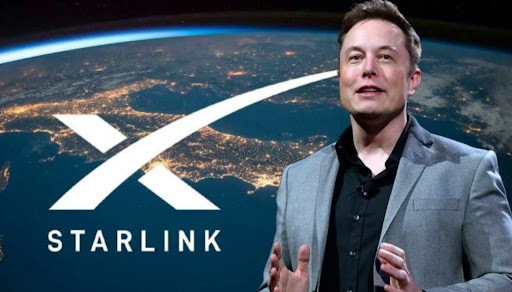Starlink India: Elon Musk's Satellite Internet Receives Key Government License

Mumbai, India – June 9, 2025
Elon Musk's Starlink has officially secured its Global Mobile Personal Communication by Satellite (GMPCS) license from the Indian government's Department of Telecommunications (DoT) on June 6th. This pivotal approval marks a watershed moment for India's digital future, positioning Starlink as a formidable player in the nation's rapidly evolving satellite internet landscape.
A "New Flower" for All of India
Union Communications Minister Jyotiraditya Scindia previously lauded Starlink's arrival as "a new flower in the telecom bouquet," highlighting the government's vision for a diverse connectivity ecosystem. He emphasized satellite communication's "vital" role in extending internet access to remote and underserved areas, where traditional infrastructure struggles. This aligns with India's deep commitment to bridging the digital divide, ensuring high-speed internet for all citizens.
High-Speed Internet for Every Corner
For a vast and diverse nation like India, satellite internet acts as a powerful equalizer. Starlink's low Earth orbit (LEO) satellites promise dramatically lower latency and more consistent speeds. This is a significant game-changer for critical sectors from online education and telemedicine to remote work and digital commerce, unlocking unprecedented opportunities in previously unreachable regions.
Next Steps: Spectrum & Ground Infrastructure
With the GMPCS license granted, Starlink becomes the third entity, after Eutelsat, OneWeb, and Reliance Jio, to hold this crucial authorization. The next critical steps involve securing spectrum allocation from the government and final clearances from the Indian National Space Promotion and Authorisation Centre (IN-SPACe). Trial spectrum is expected within two weeks. Starlink plans to establish three ground gateways in India, which will require further security approvals and several months for completion.
Affordability vs. Industry Concerns
Starlink is reportedly targeting highly competitive pricing for India, with plans potentially starting as low as ₹850 per month for unlimited data, aiming for widespread adoption. However, major telecom operators like Reliance Jio and Bharti Airtel, through the Cellular Operators Association of India (COAI), have raised concerns. They object to the proposed administrative allocation of satellite spectrum with a lower annual revenue fee (4% of AGR), arguing it creates an "unlevel playing field" compared to their substantial auction costs for terrestrial spectrum. COAI urges the telecom ministry to review these proposals for fair competition.
Strategic Vision for Digital Inclusion
Starlink's entry reflects a broader strategic shift in India's digital agenda. Discussions between Prime Minister Narendra Modi and Elon Musk underscored the transformative potential of satellite connectivity for national digital inclusion. The government's decision to embrace administrative spectrum allocation for satcom services demonstrates a pragmatic approach aimed at expediting crucial service deployment and accelerating digital transformation across the country.
Starlink's confirmed license is more than a formality; it's a beacon of hope for millions, promising to bridge the digital divide and unlock vast opportunities. The coming months will be critical as Starlink navigates remaining hurdles to bring high-speed internet from space directly to Indian homes and businesses.



 232
232

 The BharatBiz
The BharatBiz
 16
16

